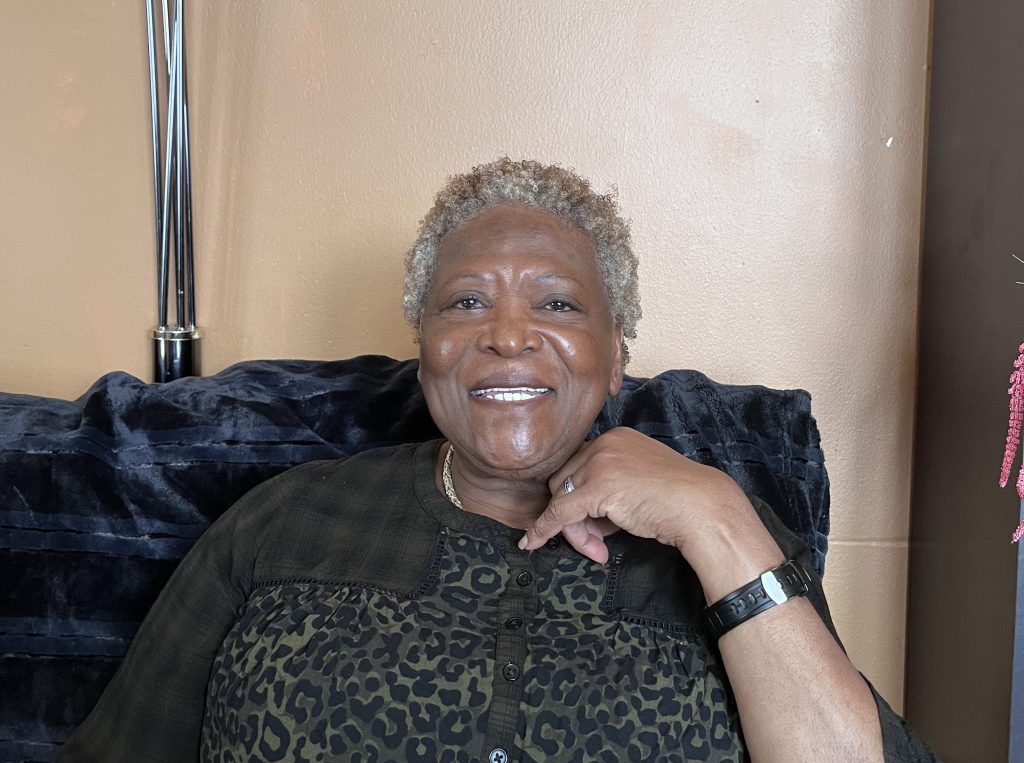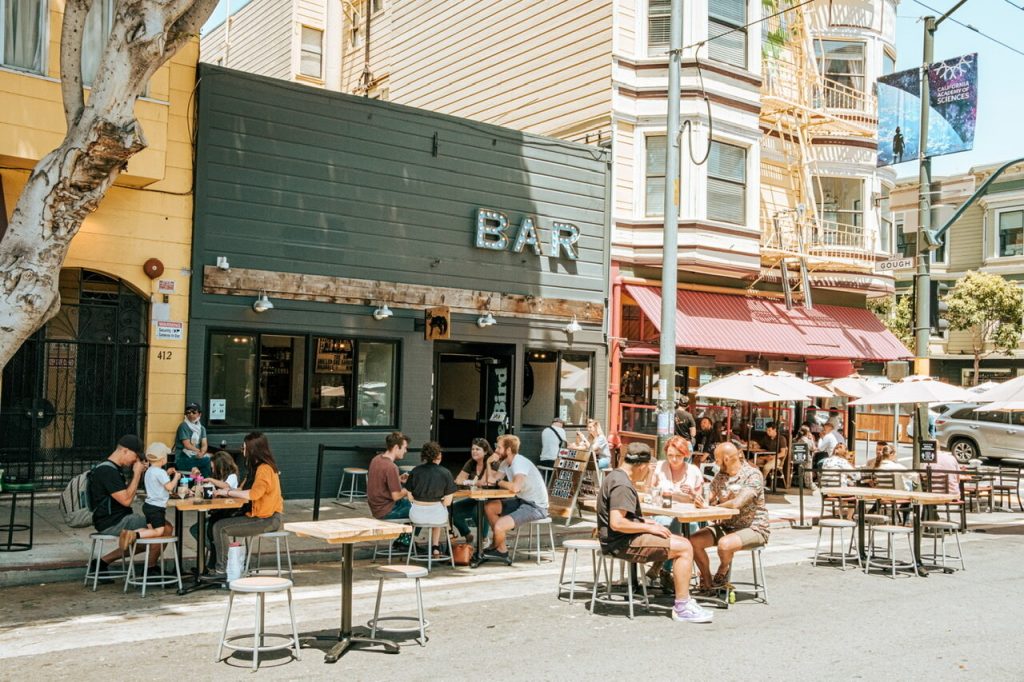
Myrtell Bass-Kuma was born in Jackson, Tennessee but grew up in the Western Addition from the time she was just three years old, where she has lived ever since. Myrtell has gone to the same neighborhood church just a few blocks away for over 30 years. She is now retired after a long career working for the County Water Department in Milbrae.
Myrtell has now been in the same rent-controlled apartment on Hayes Street since 1979 and is thinking about leaving for a quieter neighborhood and a fresh start. She is upset by the rising rate of break-ins and the density of shops and traffic.
Myrtell has entered an affordable housing lottery but has yet to have any success from it. Her friends and family don’t want her to move out of her apartment. They have all moved out of San Francisco as a result of the shortage of affordable housing and are now scattered through Antioch, Fairfield, Oakland, San Leandro, and Daly City. They travel to visit her, but she doesn’t have many people left in the city.
In March of 2022, Myrtell recounted some of her experiences to me of living in the neighborhood and watching its transformation.
The Early Years
“It was like $200 to move in. And it was very nice. Hardwood floors and the walls were all white. It’s spacious, very spacious. It’s not like other apartments….The landlord was very nice. I felt comfortable. I didn’t have any fears or anything because in the community they had different shops. They had a movie shop, a junk shop where Sharp Brothers used to be. And then they had this eating place where they had fried chicken. So, it was more like, there wasn’t a lot of stores. There were stores, but they were like family stores. Different things. Not high tech and all that. So yeah, I felt at home. There was a lot of African Americans here. Now, it’s only two of us left. There’s another family down the street and myself. So it’s changed like 120 degrees….We call to check on each other. Sometimes I see her and see says ‘I’m still here!’ And I say, ‘Me too!’”

An Avalanche of Changes
“When they tore down the freeway, things began to change. People, I don’t know. People start moving out. The rent was going up so even the restaurant that was here, the chicken place, Powell’s Place….they started upping the rent in those kind of places and that’s why they moved, because they started doubling the rent”
“It was gradually changing, and changing, and changing. And I didn’t really pay that much attention because the shops, you know, people didn’t really know about it yet. So they didn’t start coming that much. So it was still kind of, like, normal. But after it really blew up soon after that. And now it’s triple the visitation here, the cars, you know, are double parked. Like you’re at a shopping mall. People are on foot, you know, looking with their dog, and their children and babies. That’s 7 days a week.”
“Then they changed the name to Hayes Valley…I didn’t get to vote. I don’t think they should have changed it. Western Addition, they didn’t want to say it, so they outlined a thing and called it Hayes Valley. I guess because it’s so popular. Everybody knows about Hayes Valley, you know what I mean? But since I’ve been here, I know all the Western Addition all around.”
“There’s not really any Black people around here. They either went back home to the South or they moved to another city. They said ‘I’m getting out of here.’ They all got out. I don’t know. Before the changes, to me, it was a great little area. It was. And I think they overran it with too much.”
I asked Myrtell if the people pushing for changes in the neighborhood felt representative of the neighborhood to her.
“No. They didn’t have a clue. I believe it could have been different if they weren’t pushing. And I bet…if they see what came, they would have not pushed for it, because it interrupted a lot of families and the comfort of being in a safe place.”
